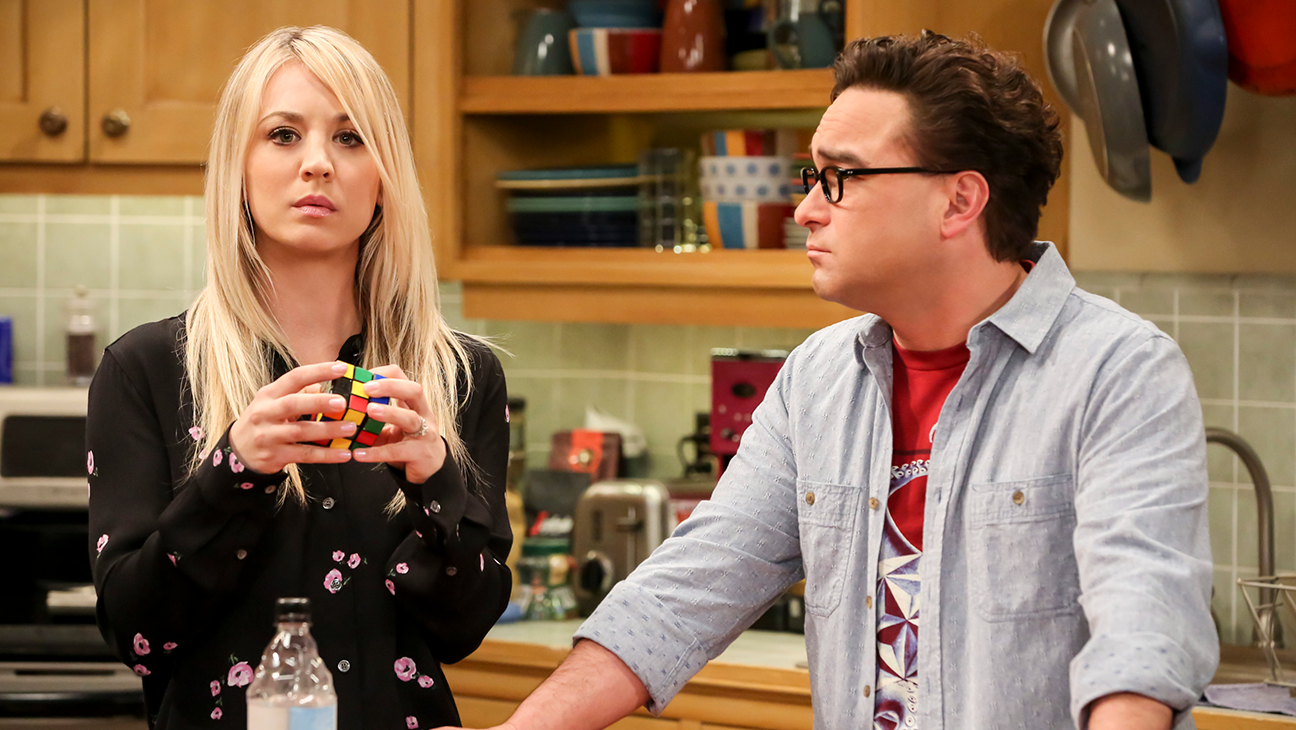
When The Big Bang Theory first hit the small screen in 2007, audiences were introduced to a cast of lovable, quirky characters. Among them was Kaley Cuoco’s Penny, who quickly became a fan favorite. She was the girl next door with a bright smile, big dreams, and a somewhat complex relationship with the geeky men of Caltech. Yet, in the beginning, Chuck Lorre, the co-creator of the show, admitted that Penny’s character wasn’t fully fleshed out. In fact, he described her as “sadly one-dimensional” at first. But what exactly did he mean by this, and how did Penny evolve into one of the most beloved characters in TV history?
In this article, we will explore Chuck Lorre’s comments about Penny’s early character development, dive into why Penny was originally written in a “one-dimensional” way, and analyze how the writers transformed her into a strong, multi-dimensional character over the course of the show’s 12-season run.
Why Penny Was “One-Dimensional” at First
A Character Archetype at the Start
When Penny first appeared on The Big Bang Theory, she was initially written as the stereotypical “girl next door” character. She was the only non-scientist in a group dominated by brilliant but socially awkward men, and her role was primarily to serve as the contrast to the rest of the group. As Chuck Lorre explained, Penny was originally depicted as “one-dimensional,” meaning her character wasn’t as fully fleshed out as the others in the show.
In the early episodes, Penny was largely defined by her role as the object of Leonard’s affection and as the “normal” person who could interact with the overly intellectual and socially awkward main characters. Her storylines often revolved around her romantic life, job struggles, and interactions with Leonard, which led to her being seen primarily through the lens of these relationships.
The Problem with One-Dimensional Characters
Why is a one-dimensional character problematic in a show like The Big Bang Theory? In essence, one-dimensional characters lack depth. They don’t undergo significant growth or change, and their motivations are often predictable. For a long-running series like The Big Bang Theory, it’s essential for characters to evolve to keep viewers engaged. Without a deeper, more complex character arc, Penny could have easily fallen into the trap of becoming a stereotypical love interest without much substance.
Chuck Lorre’s acknowledgment of this flaw was a crucial first step in fixing Penny’s character. It set the stage for a deeper exploration of her personality and storylines.

How Penny Evolved Over Time
Introducing Penny’s Backstory
As the series progressed, the writers made a conscious effort to explore Penny’s backstory and provide more context for her character. No longer just the girl next door, Penny’s past began to reveal itself in more meaningful ways. She wasn’t just the waitress at The Cheesecake Factory who dreamed of becoming an actress. Penny had a complicated family history, including a difficult relationship with her parents and her struggles to find success in the entertainment industry.
By giving Penny more depth, the writers helped the audience connect with her on a more personal level. Penny’s vulnerability became a key part of her character’s charm, and viewers began to see her not just as Leonard’s love interest but as a multi-faceted individual who had her own dreams, fears, and flaws.
Penny’s Career Growth
Another critical factor in Penny’s evolution was her career growth. Early on, Penny’s job as a waitress at The Cheesecake Factory was a significant part of her character, but it wasn’t enough to define her. Over time, however, Penny’s journey toward professional success became more central to her story. She moved from being an aspiring actress to landing a sales job at a pharmaceutical company, eventually rising to a position of respect within her industry.
Her career development mirrored her personal growth. Penny became more confident in her abilities and assertive in her professional life, transforming into a strong, independent woman. This career arc helped elevate her character and demonstrated that Penny was more than just the romantic interest for Leonard.
Penny’s Relationships and Personal Growth
Penny’s relationship with Leonard also evolved over time. Initially, their romance seemed like a typical will-they-won’t-they dynamic, but as the seasons progressed, the depth of their relationship was explored. Penny’s commitment to Leonard grew, and so did her relationship with the other characters. She became a central part of the gang, offering advice, encouragement, and emotional support to the men who initially looked to her as an outsider.
Additionally, Penny’s friendships with characters like Amy and Bernadette became key to her character’s development. These relationships helped Penny grow as a person, showing that she was more than just Leonard’s girlfriend. Her friendships with other women allowed for a deeper exploration of her emotional range, making her more relatable and multi-dimensional.
Why Penny’s Character Resonated with Fans
Relatability and Authenticity
One of the reasons Penny’s character became so beloved was her relatability. She wasn’t a genius like Sheldon or Raj, nor was she a career-driven woman like Amy or Bernadette. Instead, she was just a regular person trying to find her place in the world. Her struggles with relationships, career, and self-doubt were things many viewers could identify with, making her an important character in the show.
Penny’s authenticity was a crucial part of her character’s success. She wasn’t perfect, and her flaws made her more human. Her journey of self-discovery and personal growth resonated with audiences who saw themselves in her.
The Evolution of Penny and Leonard’s Relationship
As mentioned earlier, Penny’s relationship with Leonard was one of the driving forces of her character’s development. Over the seasons, their relationship evolved from a simple crush to a deep, committed partnership. This growth mirrored Penny’s own journey, and fans watched as both characters matured together.
Their eventual marriage and family life provided the perfect conclusion to Penny’s character arc, cementing her as a fully realized, well-rounded character who had grown both personally and professionally.
Chuck Lorre’s Reflection on Penny’s Character
Acknowledging the Journey
In interviews, Chuck Lorre has reflected on the transformation of Penny’s character, acknowledging that she wasn’t always as fully developed as the show’s writers intended. However, he also praised the writers and the cast for taking the time to dive deeper into Penny’s backstory and personality. He recognized that Penny’s growth was essential not only to her character but to the overall success of the show.
Lorre’s openness about Penny’s early characterization shows how the writers were willing to listen to feedback and make necessary changes. It’s a testament to the collaborative process behind The Big Bang Theory and its dedication to creating meaningful character arcs.
Conclusion: The Impact of Penny’s Character on ‘The Big Bang Theory’
Penny’s character arc in The Big Bang Theory is a prime example of how a one-dimensional character can evolve into a fan favorite when given the proper attention and development. Thanks to the efforts of Chuck Lorre, the writers, and Kaley Cuoco’s brilliant performance, Penny became much more than just the “girl next door.” She became a fully realized character with depth, flaws, and incredible growth over the course of the series.
By focusing on her backstory, career development, and relationships, the show transformed Penny into one of the most relatable and beloved characters in sitcom history. Her journey from “one-dimensional” to multi-faceted is a testament to the power of strong writing, and it’s one of the many reasons why The Big Bang Theory remains a beloved TV classic.
FAQs
1. Why was Penny considered one-dimensional at first on The Big Bang Theory?
Penny was initially written as the stereotypical “girl next door” who served as a contrast to the geeky male characters, and her storylines revolved mainly around her relationship with Leonard.
2. How did Penny’s character evolve over the seasons?
Penny’s character evolved by delving deeper into her backstory, career, and relationships. She grew into a strong, independent woman, which made her a more complex and relatable character.
3. What role did Penny’s career play in her character development?
Penny’s career growth allowed her to gain more independence and confidence. She transitioned from a waitress to a successful saleswoman in the pharmaceutical industry, reflecting her personal growth.
4. How did Chuck Lorre reflect on Penny’s character development?
Chuck Lorre acknowledged that Penny’s character was initially one-dimensional but praised the writers for taking the time to explore her backstory and development, ultimately turning her into a multi-dimensional
